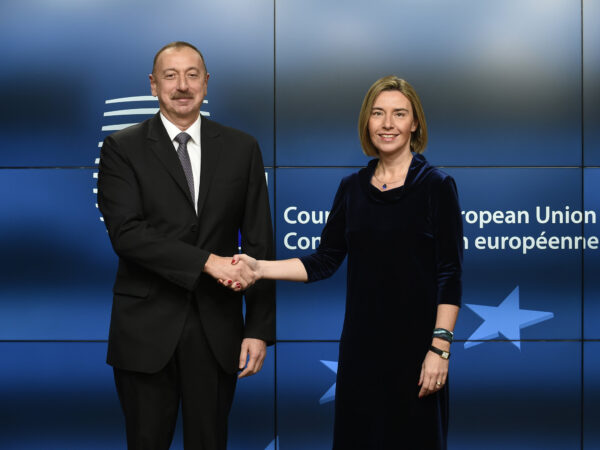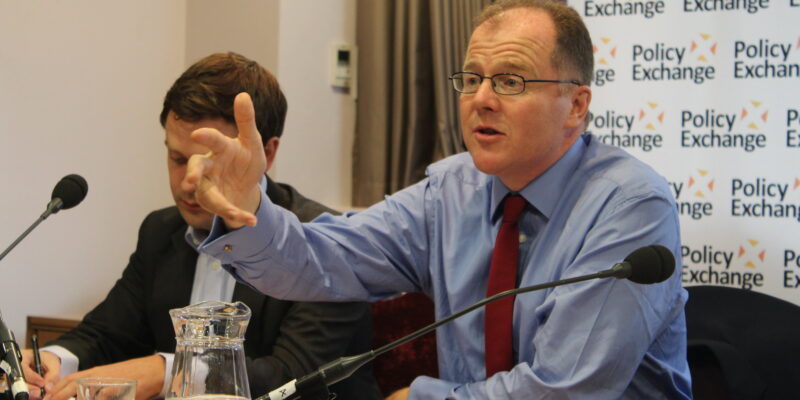From the Nordic states to Azerbaijan – plans for a ‘European Political Community’ at the Prague summit?
John Palmer discusses the new ‘big idea’ in European security and economic cooperation.

“Summits” – particularly Heads of Government gatherings convened by the European Union – can be very large affairs. As the EU has grown from 6 to 28 Member States this has been inevitable. But the proposed EU ‘Political Community’ summit which has been convened for October 6th in Prague looks like breaking all records.
Apart from the 28 existing EU members, the Prague gathering will include Norway, Iceland, Lichtenstein and Switzerland, and all the existing candidate EU member states in the Balkans (North Macedonia, Albania, Serbia, and Montenegro), Ukraine and Moldova (who were both given candidate status this year), Kosovo and Georgia, who also aspire to become EU members, as well as Armenia and Azerbaijan from the Caucasus. No less than 44 Heads of Government will be heading to Prague.
An invitation to Turkey was also mooted although Greece has indicated opposition and Ankara’s participation remains in doubt. Other EU capitals question whether a European ‘Political Community’ can really embrace both outright opponents of the Russian invasion of Ukraine and a Turkish government which is not only becoming increasingly authoritarian under Erdoğan’s leadership but wants to be a ‘mediator’ between Russia and the West.
Having placed itself in the strange position of both providing weapons to Ukraine while deepening economic cooperation with Russia in spite of western sanctions, Ankara has also said that it will only take part if the EU re-states its invitation to eventually become a full member. The French government has expressed growing concern that Turkey is helping Russia actively avoid the sanctions regime introduced after the onslaught on Ukraine.
But are double standards not also being displayed by the invitation to Azerbaijan which cannot credibly be regarded as a democracy? Adding further to this complexity is the invitation to Armenia, a country with which Azerbaijan is still at war (there were further clashes in August 2022). Although a democratic state, Armenia sits squarely within the Russian sphere of influence and a large Russian military base is currently being built in the country.
The French vision: an alternative to enlargement?
The EU has also invited the UK government to take part – in spite of the visible deterioration of its relations with London following Brexit and the threatened disavowal of the Brexit terms of the Northern Ireland Protocol. Indeed many in Brussels fear this could easily turn into a full scale crisis between the UK and the EU – even involving a consequential ‘trade war.’ Only recently Liz Truss was asked whether Macron was ‘A Friend or a Foe’ of the UK and she replied “The jury is out.”
The European Political Community idea was initiated by President Macron, but expressed a long-standing position of Paris. Historically the French government have tended to counterpose ‘deepening’ integration to ‘widening’ the union. A club for aspiring members to ‘sit’ while waiting to join fits with this conception.
The “Political Community” proposal reflects the fact that the pace of future EU enlargement is unlikely to be maintained at the speed of the past two decades. But at the same time the growing confrontation between the ‘West’ and Russia – particularly following President Putin’s invasion of Ukraine – threatens an expanding zone of security instability around the frontiers of the EU itself.
A grand idea, but will it come to anything in practice?
So, what might be expected from the 44 or so heads of government in Prague? It might help to resolve problems blocking the enlargement progress in the Balkans. These include serious frictions (and potential armed conflict) between Serbia and both Kosovo and Bosnia. Bulgarian reluctance to accept Macedonian as a bona fide language (insisting it is only Bulgarian ‘dialect’) seems to be all that is holding up North Macedonian accession to the EU.
Progress in these areas could provide some reassurance to Ukraine and Moldova that the EU is serious about preparing for their eventual future accession. Paris and Brussels believe more effective coordination today on political and security strategy will improve prospects for further EU enlargement tomorrow.
For now the summit organisers insist on greater coordination on economic, energy, health and environmental objectives as well as other (more questionable) areas such as managing ‘the movement of migrants.’ Concrete military/security cooperation is unlikely to figure in the Prague summit conclusions. These issues are strictly reserved to NATO, the WEU and the EU Common Security and Defence Cooperation organisation.
It remains to be seen what – in practice – it will all amount to. The sheer scale of the venture is no guarantee of positive outcomes. The European socialist left will need to monitor the process particularly closely. It is essential that the European Parliament exacts from the EU institutions and governments full and detailed reports about the proposed future direction of travel after Prague.
Some may think the whole project improbably utopian. But it is not the first time a ‘European Political Community’ summit has been convened. One took place in 1952 between just six interested European states (France, Germany, Italy, Belgium, the Netherlands and Luxembourg). It led – just five years later – to the Treaty of Rome and the creation of the European Economic Community (later European Union).
***
PS. In 1982, while I was a Visiting Fellow, Sussex University published a paper of mine entitled “Beyond EU Enlargement -Towards a European Commonwealth.” It ran on very similar lines to the Prague summit process – but it held out the possibility of a place for a reformed democratic Russia.
***
John Palmer is the former Europe editor of the Guardian and a member of the Another Europe Is Possible National Committee.
September 12, 2022
Brexit Spotlight is run by Another Europe Is Possible. You can support this work by joining us today. The website is a resource to encourage debate and discussion. Published opinions do not necessarily represent those of Another Europe.





